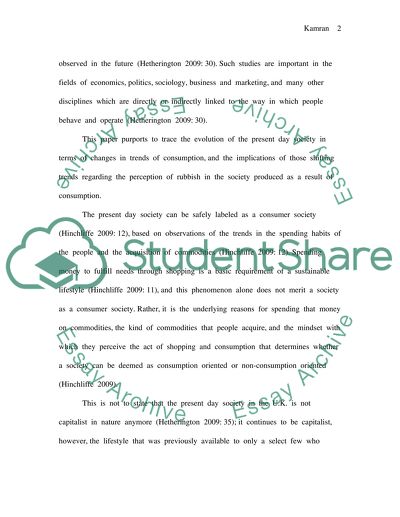Cite this document
(“Value of Rubbish in a Consumer Society Essay Example | Topics and Well Written Essays - 1250 words”, n.d.)
Retrieved from https://studentshare.org/psychology/1429579-outline-the-ways-in-which-rubbish-can-be-said-to
Retrieved from https://studentshare.org/psychology/1429579-outline-the-ways-in-which-rubbish-can-be-said-to
(Value of Rubbish in a Consumer Society Essay Example | Topics and Well Written Essays - 1250 Words)
https://studentshare.org/psychology/1429579-outline-the-ways-in-which-rubbish-can-be-said-to.
https://studentshare.org/psychology/1429579-outline-the-ways-in-which-rubbish-can-be-said-to.
“Value of Rubbish in a Consumer Society Essay Example | Topics and Well Written Essays - 1250 Words”, n.d. https://studentshare.org/psychology/1429579-outline-the-ways-in-which-rubbish-can-be-said-to.


